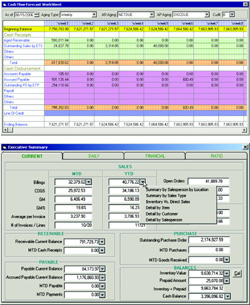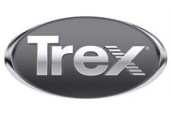According to Idaho Pacific CFO Eric Grandeen, the Windows-based WoodPro2000 system the company has migrated to over the past 20 months has indeed centralized the way the firm accounts for and tracks outbound inventory. “Clearly, we make sales because of our sales contacts,” Grandeen says. “If we can provide more accurate and timely information, we become more efficient in processing those sales. WoodPro does track out jobs more accurately, so in the end, we give better service to our customers because we have better information.”
Mills says the WoodPro migration is part of a tech evolution that has been nonstop since Idaho Pacific plugged in its first computers in 1985. “It just never stops,” he says. “You continue to try to use technologies to improve your efficiency, whether it’s WoodPro or e-mail or fax. We’re trying to waste as few steps as possible, and there are a lot of communication tools to help us get that done, but you have to remember that you can have the greatest technology in the world, but if you don’t perform, you don’t get the next order.”
For the wholesale market, getting those next orders involves continuing to perfect the direct transport of lumber goods from the mills to the jobsite. Despite having the Woodinville distribution yard and its inventory at their disposal, Matheus sales reps are “encouraged” to ship direct to the jobsite from suppliers, according to company CFO David Kahle. “We add a yard cost to all sales from our main inventory location.” Matheus also has developed its first retail-style facility in Ellensburg, Wash., to test its strengths in the traditional pro dealer market, and Powell reports some success there after one year of operation. “The fact that we didn’t have a retail center has always allowed us to remain flexible,” he says. “But we’ve been doing very well [balancing the businesses] so far.”
On the service end, Idaho Pacific is experimenting with using roller-bed trucks for smaller fill-in drops to complement its typical 50,000-pound semi-truck–size deliveries. Matheus uses a small fleet of trucks that it can dispatch across large areas of the country for smaller VIP deliveries, as well. The technique is one intended to overcome a market stigma that, while cost-effective, direct wholesale lumber is still a long-distance service affair. “There are still plenty of customers that raise an eyebrow when you are selling a jobsite in Denver from Woodinville, Wash.,” Powell says, adding that most of the larger players in the supply chain tend to “get it,” especially if they are cost conscious.
“There has always been an argument that some will make, that the local guy is right there and can respond from a service end,” agrees Mills. “But we feel that given the opportunity we can service the jobsite as well as anyone.” With Idaho Pacific sales this year projected to hit $175 million, there are apparently plenty of contractors who agree.



